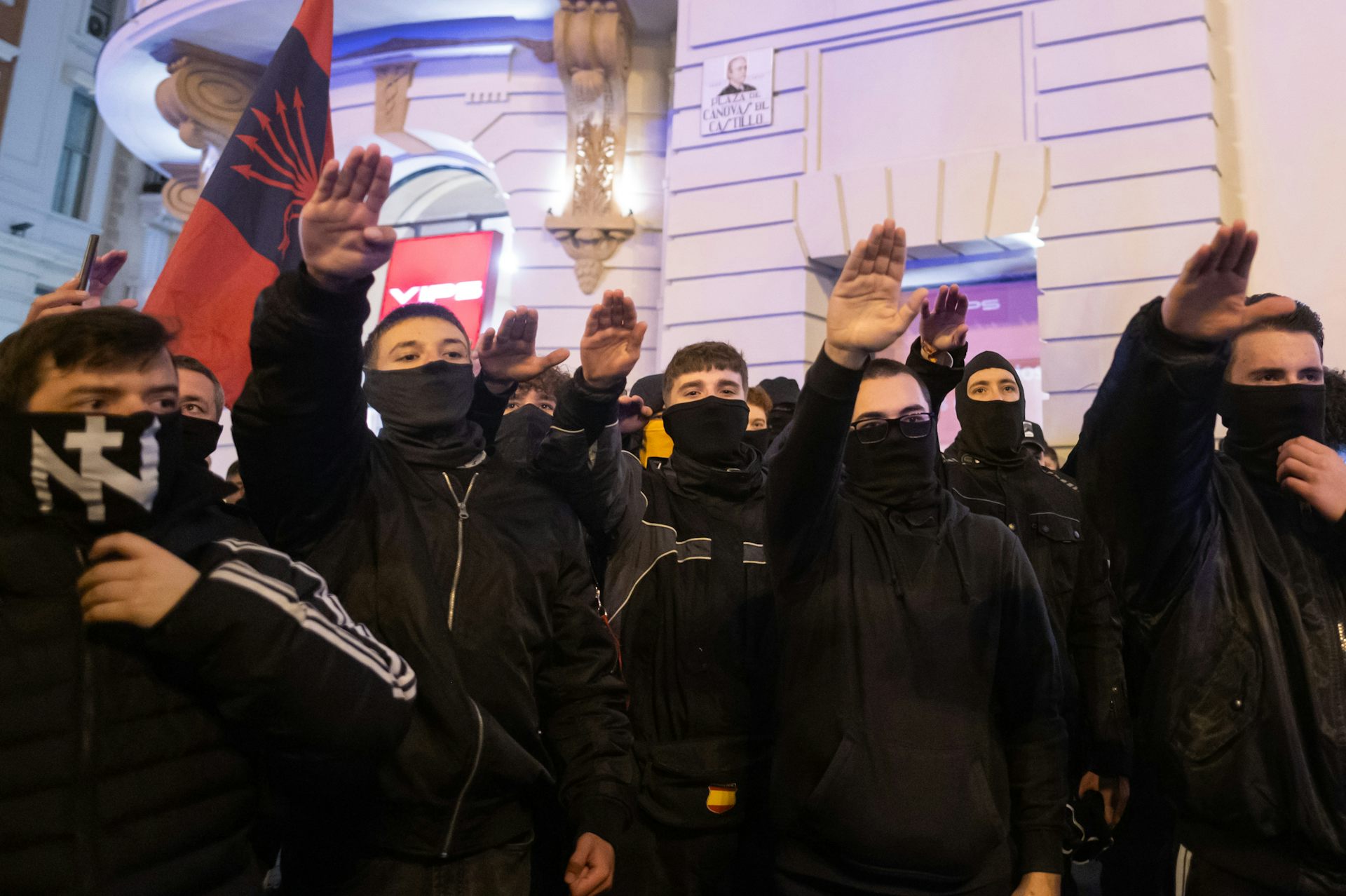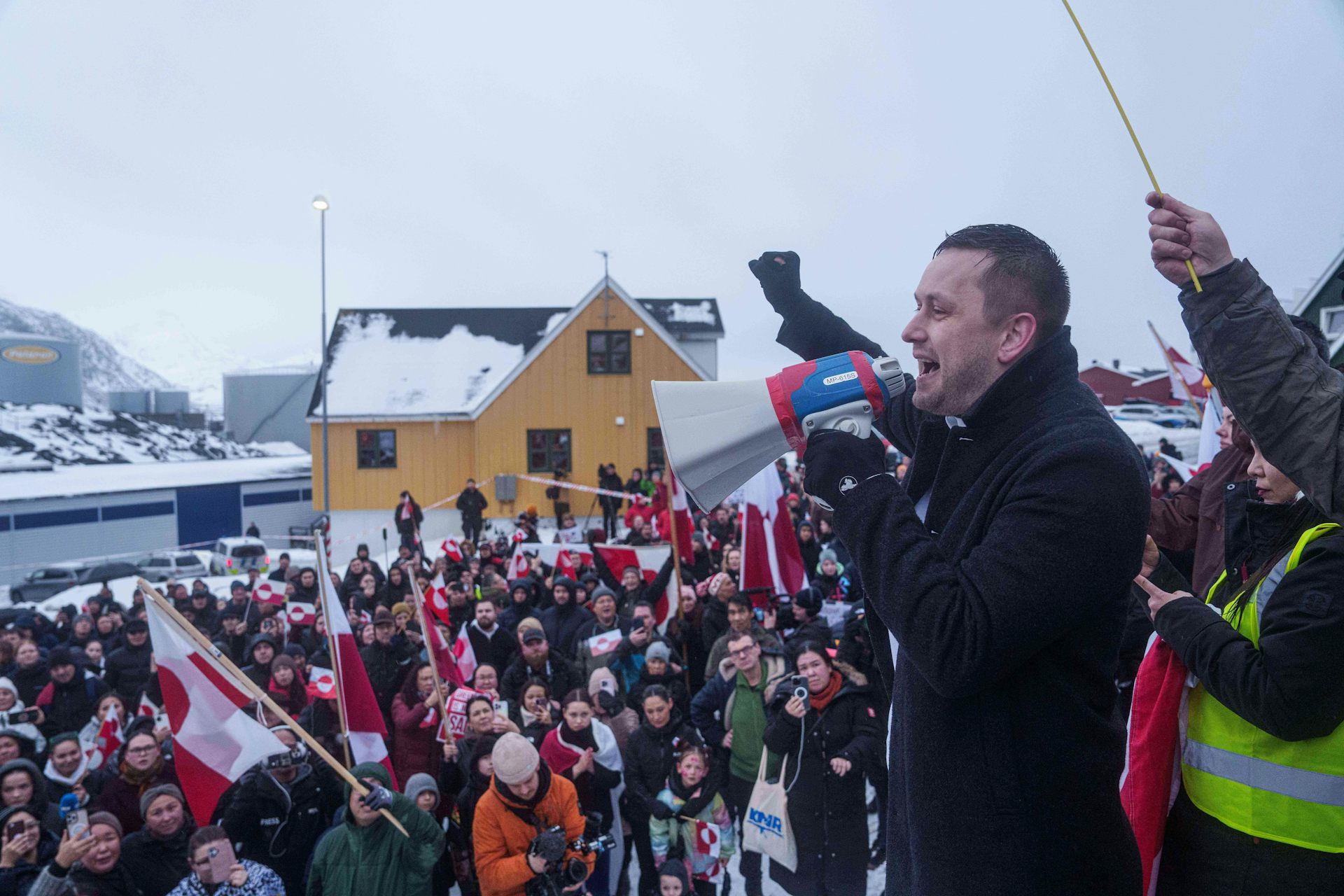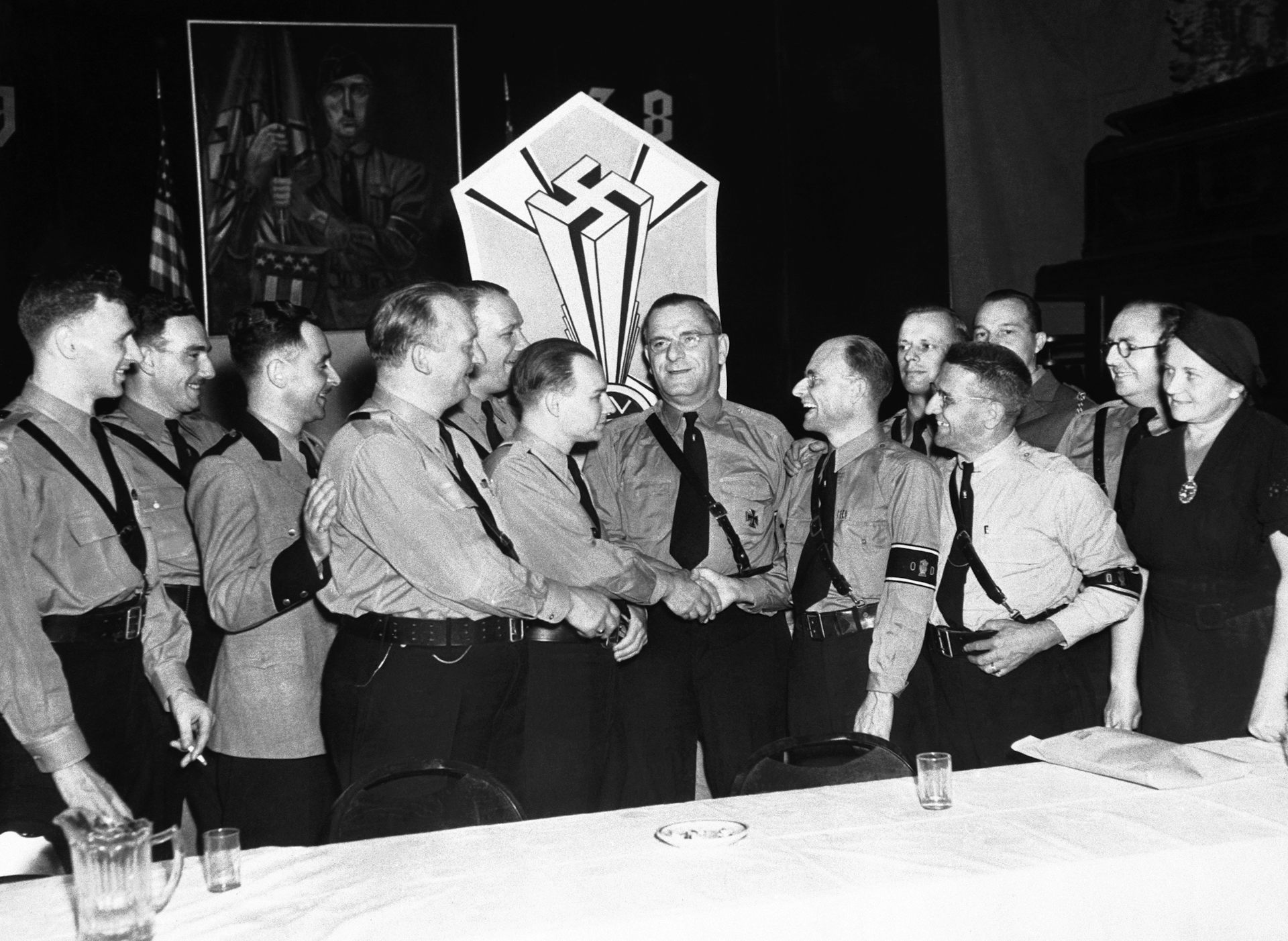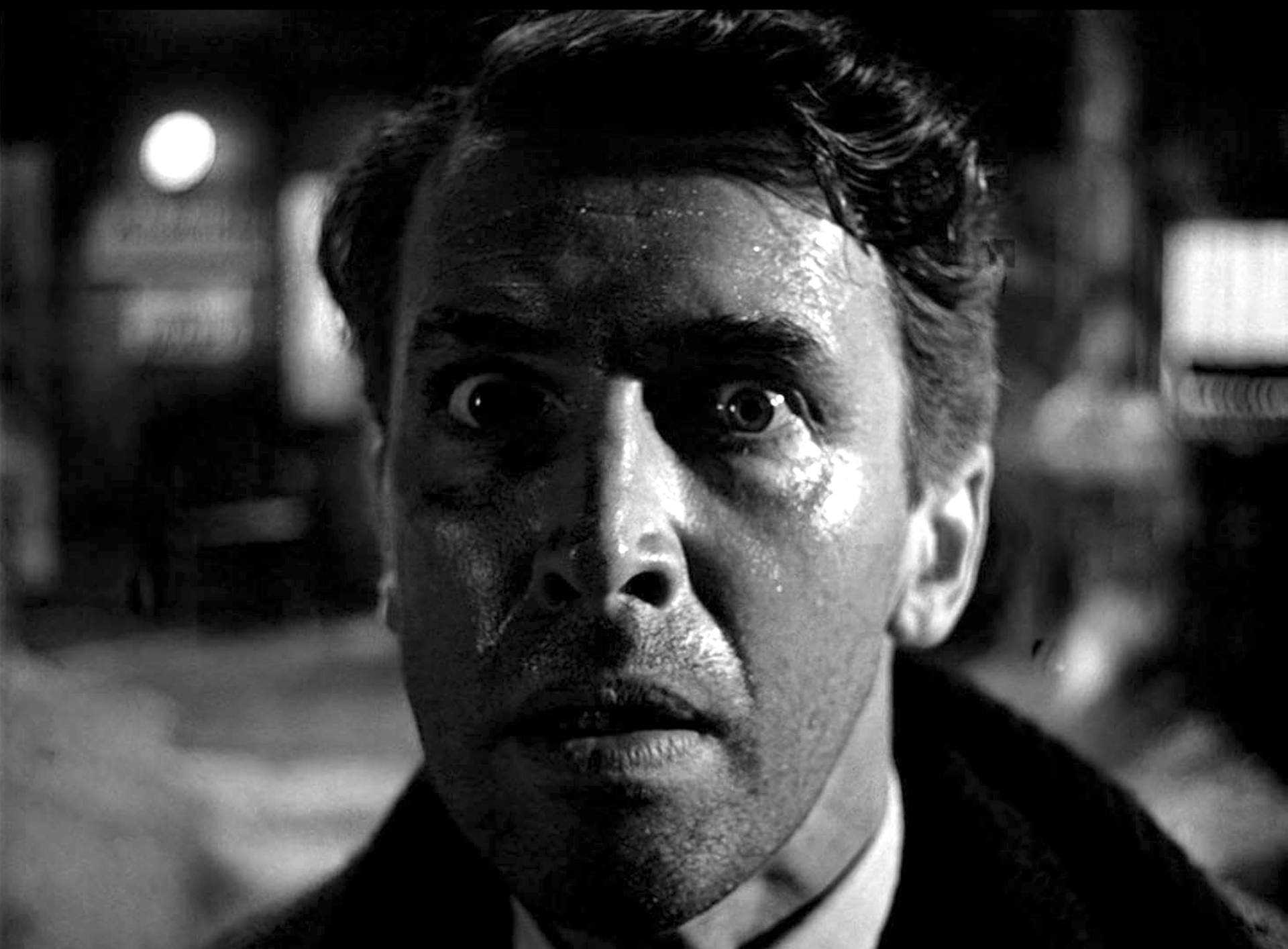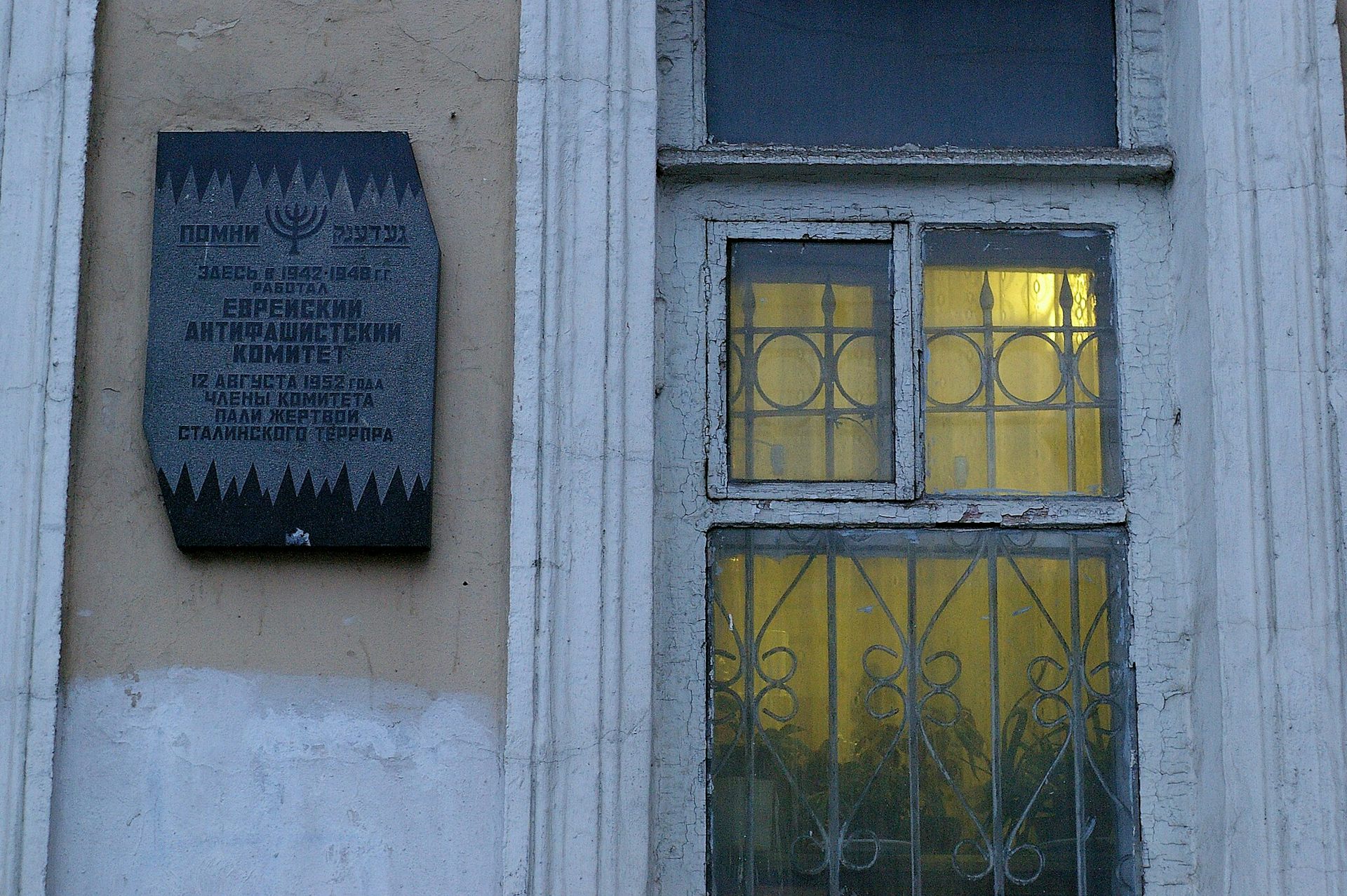What is fascism?
Given the current, often erroneous, use of the term 'fascist' to describe political movements and leaders, it's important to determine what fascism is and is not.
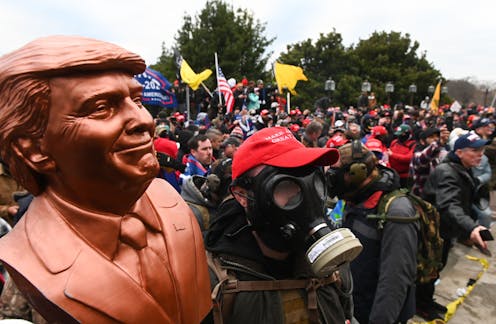
Since before Donald Trump took office, historians have debated whether he is a fascist.
As a teacher of World War II history who has written about fascism, I’ve found that historians have a consensus definition of the term, broadly speaking.
Given the term’s current – and sometimes erroneous – use, I think it’s important to distinguish what fascism is and is not.
Race-first thinking
Fascism, now a century old, got its start with Benito Mussolini and his Italian allies. They named their movement after an ancient Roman emblem, the fasces, an ax whose handle has been tightly reinforced with many rods, symbolizing the power of unity around one leader.
Fascism means more than dictatorship, however.
It’s distinct from simple authoritarianism – an anti-democratic government by a strongman or small elite – and “Stalinism” – authoritarianism with a dominant bureaucracy and economic control, named after the former Soviet leader. The same goes for “anarchism,” the belief in a society organized without an overarching state.
Above all, fascists view nearly everything through the lens of race. They’re committed not just to race supremacy, but maintaining what they called “racial hygiene,” meaning the purity of their race and the separation of what they view as lower ones.
That means they must define who is a member of their nation’s legitimate race. They must invent a “true” race.
Many are familiar with Adolf Hitler and the Nazi regime’s so-called Aryan race, which had no biological or historical reality. The Nazis had to forge a mythic past and legendary people. Including some in the “true race” means excluding others.
Capitalism is good
For fascists, capitalism is good. It appeals to their admiration of “the survival of the fittest,” a phrase coined by social Darwinist Herbert Spencer, so long as companies serve the needs of the fascist leadership and the “Volk,” or people.
In exchange for protecting private property, fascists demand capitalists act as cronies.
If, for example, a company is successfully producing weapons for foreign or domestic wars – good. But if a company is enriching nonloyal people, or making money for the imagined subrace, the fascists will step in and hand it to someone deemed loyal.
If the economy is poor, the fascist will divert attention from shortages to plans for patriotic glory or for vengeance against internal or external enemies.
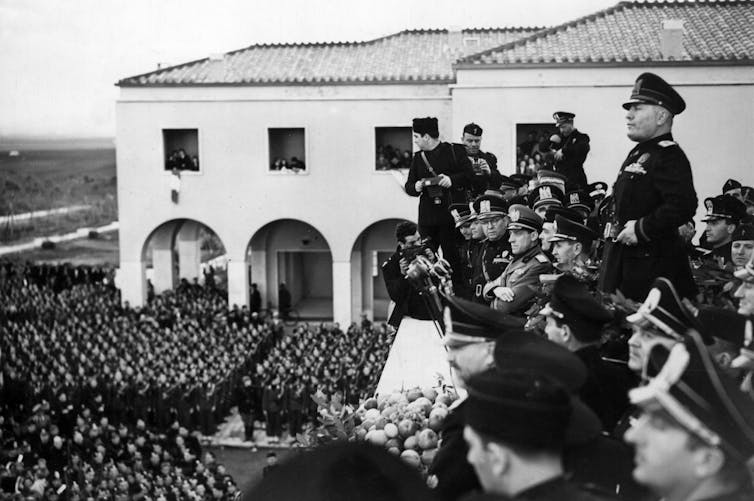
Might makes right
Important to most fascists is the idea that the nation’s “patriots” have been let down, that “good people” are humiliated while “bad people” do better.
These grievances cannot be answered, fascists say, if things remain under the status quo. There needs to be revolutionary change allowing the “real people” to break free from the restraints of democracy or existing law and get even.
For fascists, might makes right.
Since for them the law should be subservient to the needs of the people and the need to crush socialism or liberalism, fascists encourage party militias. These enforce the fascist will, break unions, distort elections and intimidate or co-opt the police.
The historical fascists of Germany and Mussolini’s Italy extended the might-makes-right principle to expansion abroad, though the British fascists of the 1930s, led by Oswald Mosley and his British Union of Fascists, preferred isolationism and preached a sort of internal war against an imagined Jewish enemy of the state.
What fascists reject
First and foremost, fascists want to revolt against socialism. That’s because it threatens the crony capitalism that fascists embrace.
Not only does socialism aim for equal prosperity no matter the race, but many socialists tend to envision the eventual extinction of separate nations, which offends the strong fascist belief in nation states.
Along with getting rid of aristocrats or other elites, fascists are prepared to displace the church or seek a mutually beneficial truce with the it.
Mussolini, Hitler and the Falangists in Spain learned that they had to live with, not replace, the church in their countries – as long as their regimes weren’t broadly attacked from the pulpit.
Fascists also reject democracy, at least any democracy that could potentially result in socialism or too much liberalism. In a democracy, voters can choose social welfare policies. They can level the playing field between classes and ethnicities, or seek gender equality.
Fascists oppose all of these efforts.
Fascism grows from nationalism
Fascism is the logical extreme of nationalism, the roughly 250-year-old idea that nation states should be built around races or historical peoples.
The first fascists didn’t invent these ideas out of nothing – they just pushed nationalism further than anyone had before. For the fascist, it’s not just that a nation state makes “the people” sovereign. It’s that the will of righteous, real people – and its leader – comes before all other considerations, including facts.
Indeed, the will, the people, their leader and the facts are all one in fascism.
John Broich does not work for, consult, own shares in or receive funding from any company or organization that would benefit from this article, and has disclosed no relevant affiliations beyond their academic appointment.
Read These Next
What Franco’s fascist regime in Spain can teach us about today’s America
Comparisons of Trump to Hitler have become common. But some of Trump’s policies may more closely resemble…
Trump’s Greenland ambitions could wreck 20th-century alliances that helped build the modern world or
How the US treats its allies has been a crucial question for every president. What evolved over the…
America faced domestic fascists before and buried that history
Although thousands of Americans embraced fascist ideas during the interwar years, a new study examines…


